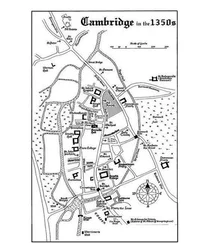Susanna Gregory - The Piccadilly Plot
Здесь есть возможность читать онлайн «Susanna Gregory - The Piccadilly Plot» весь текст электронной книги совершенно бесплатно (целиком полную версию без сокращений). В некоторых случаях можно слушать аудио, скачать через торрент в формате fb2 и присутствует краткое содержание. Год выпуска: 2012, ISBN: 2012, Издательство: Little, Brown Book Group, Жанр: Исторический детектив, на английском языке. Описание произведения, (предисловие) а так же отзывы посетителей доступны на портале библиотеки ЛибКат.
- Название:The Piccadilly Plot
- Автор:
- Издательство:Little, Brown Book Group
- Жанр:
- Год:2012
- ISBN:9780748121052
- Рейтинг книги:3 / 5. Голосов: 1
-
Избранное:Добавить в избранное
- Отзывы:
-
Ваша оценка:
- 60
- 1
- 2
- 3
- 4
- 5
The Piccadilly Plot: краткое содержание, описание и аннотация
Предлагаем к чтению аннотацию, описание, краткое содержание или предисловие (зависит от того, что написал сам автор книги «The Piccadilly Plot»). Если вы не нашли необходимую информацию о книге — напишите в комментариях, мы постараемся отыскать её.
The Piccadilly Plot — читать онлайн бесплатно полную книгу (весь текст) целиком
Ниже представлен текст книги, разбитый по страницам. Система сохранения места последней прочитанной страницы, позволяет с удобством читать онлайн бесплатно книгу «The Piccadilly Plot», без необходимости каждый раз заново искать на чём Вы остановились. Поставьте закладку, и сможете в любой момент перейти на страницу, на которой закончили чтение.
Интервал:
Закладка:
Susanna Gregory
The Piccadilly Plot
Prologue
Tangier, 4 May 1664
William Reyner watched Lord Teviot lead the five hundred soldiers to their deaths. It would be easy to prevent the massacre — just gallop after the column and tell Teviot that more than ten thousand Barbary corsairs were lying in wait ahead — but he made no move to do so. A large amount of money was at stake, and that was considered far more important than the lives of mere warriors. Besides, Reyner had never liked Teviot: the man was a greedy fool, who should never have been appointed Governor of Tangier in the first place.
He glanced around him. Tangier had come to England as part of Queen Katherine’s dowry, but it was a paltry place — a few winding streets huddled on a hill, rich with the scent of exotic spices, sun-baked manure and the salty aroma of the sea. It was being fortified, in the hope that it would provide British ships with a secure Mediterranean anchorage, although personally Reyner thought the King should have held out for something better. Tangier’s harbour was too shallow and too exposed, while the surrounding countryside was full of hostile Moors.
When the last infantryman had marched through the town gate, Reyner and his fellow scouts followed on horseback. Colonel Harley was in the lead, sullen and scowling as usual, while the impassive Robert Newell brought up the rear. All three were careful to keep their distance: they did not want to become entangled in the slaughter that was about to take place.
Teviot’s destination was a wood named Jews Hill; a place where corsairs often gathered to harry the town. The three scouts had assured him that it was safe that day — a good time to chop down some of the trees and make it more difficult for raiders to use in the future. The reality was that it had never been more dangerous.
It was not long before the first sounds of battle drifted back on the hot, dusty breeze — the yells of men roaring an attack and the spluttering crack of gunfire. Reyner, Harley and Newell pulled up.
Although Reyner did not care about Teviot, he had always been uncomfortable with sacrificing half the town’s garrison into the bargain. Harley and Newell had scoffed at his faint-heartedness, reminding him of the fabulous rewards they would reap when the deed was done, but he could not escape the conviction that the plan was unnecessarily brutal, and that a less bloody way should have been devised to realise their master’s plans.
The first skirmish did not last long, and the British cheered when the Moors turned and ran. Reyner stared hard at Harley: there was still time to stop what had been set in motion, to warn Teviot that the first attack was a ruse to lure him and his men deeper into the woods. But Harley ignored him. Oblivious to the peril, Teviot rallied his troops and led an advance up the hill.
The British were jubilant at the enemy’s ‘flight’, and it was clear they felt invincible. They walked a little taller in the wavering heat, the fierce African sunlight glinting off their helmets and weapons. Teviot was at their head, a tall, athletic figure on his white horse. He looked like a god, although Reyner knew he was anything but: the Governor of Tangier was a vain, stupid man, whose incompetence was matched only by his venality.
The corsair commander timed his ambush perfectly, splintering Teviot’s column into clusters. There was immediate panic: the British had been trained to fight in a specific formation, and did not know what to do once their orderly line had been broken. Teviot did his best, bawling orders and laying about him like a demon. Grudgingly, Reyner admitted that, for all his faults, the man was no coward.
The battle was short and brutal. Pikes and short swords were no match for ten thousand scything scimitars, and the British were cut down in ruthless hand-to-hand skirmishing. Teviot managed to rally a few men at the top of the hill, where he mounted a brave last stand, but it was hopeless. The Moors advanced in an almost leisurely fashion, and Teviot was hacked to pieces.
Without a word, Reyner, Harley and Newell rode back to Tangier, ready to feign shock when news of the catastrophe reached the town. They did not have long to wait. Miraculously, about thirty soldiers had managed to escape. They stumbled through the gate, shaken and bloody, gasping their tale to the settlement’s horrified residents.
Reyner closed his ears to the wails of shock and disbelief, telling himself that the massacre was Teviot’s own fault for choosing the wrong side in the struggle for riches and power — his master had had no choice but to order his elimination. But he was uneasy, even so. The order to kill Teviot had been delivered with a ruthless insouciance, and Reyner had sensed a dark and deadly power.
Not for the first time since he had been recruited, he wondered whether he had been right to throw in his lot with such a person. He had been promised a handsome payment, it was true, but what good was a fortune if he was not alive to enjoy it — if it was decided that those who had engineered the atrocity were too great a liability, and should be dispatched themselves?
But what was done was done, and there was no going back. He, Harley and Newell would just have to ensure that no one ever learned the truth about what had transpired on Jews Hill that pretty spring morning. And if that entailed more murders, then so be it.
Queenhithe, early October 1664
It had been a pleasant voyage for the passengers and crew of Eagle . The sea had been calm, even across the notorious Bay of Biscay, and the winds favourable. The cargo comprised luxury goods from the eastern Mediterranean, so there were no noxious odours from the holds to contend with, and the journey from Tangier had been made in record time.
Now they were almost home. They had sailed up the River Thames that morning, arriving at London Bridge just as the drawbridge was being raised to let masted ships through. The timing could not have been better, and Captain Pepperell was pleased with himself as he conned his ship towards Queenhithe. Then he glanced at his passengers, who had gathered on deck to watch Eagle dock, and felt his good humour slip a little.
An irascible, unfriendly man, Pepperell much preferred those journeys where the guest cabins were empty. Still, he had been paid to monitor these particular passengers, although it had not been easy — they had been almost as reluctant to socialise as he himself, and the information he had gathered was meagre. Of course, that was not to say it was unimportant, and he believed it would be very gratefully received.
They were the usual mixed bag. Reverend Addison was Tangier’s chaplain, returning to London for a holiday; Thomas Chaloner was some sort of diplomat; Harley, Newell and Reyner were army scouts — surly, mean-spirited individuals whom the crew disliked; and John Cave was a musician who had been sent to entertain the troops.
The Captain smirked as he recalled the garrison’s stunned disbelief when Cave had embarked on a medley of elegant arias. They liked bawdy tavern songs, and excerpts from Italian operas were definitely not what they had wanted to hear. Yet for all that, thought Pepperell, Cave did sing prettily. Chaloner played the bass viol, and even Pepperell — not a man given to foolish sentiment — had been moved by the haunting beauty of some of the duets they had performed on the voyage home.
He gave the last few orders that saw Eagle safely moored, then left his second-in-command, Anthony Young, to supervise the unloading, while he went to complete landing formalities with the harbour master. He strode towards the customs building, a little unsteady on legs that were more attuned to the roll of the sea.
Читать дальшеИнтервал:
Закладка:
Похожие книги на «The Piccadilly Plot»
Представляем Вашему вниманию похожие книги на «The Piccadilly Plot» списком для выбора. Мы отобрали схожую по названию и смыслу литературу в надежде предоставить читателям больше вариантов отыскать новые, интересные, ещё непрочитанные произведения.
Обсуждение, отзывы о книге «The Piccadilly Plot» и просто собственные мнения читателей. Оставьте ваши комментарии, напишите, что Вы думаете о произведении, его смысле или главных героях. Укажите что конкретно понравилось, а что нет, и почему Вы так считаете.












